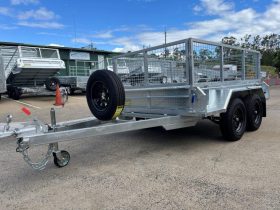Far too many enthusiastic entrepreneurs rush into launching a business based on assumptions instead of hard data. While passion is crucial, real market research should fuel your early strategic decisions with real data. Analyzing target customers, competitors, and industry trends will support or refute key assumptions. Avoid treating all potential customers as one generic group with the same wants and needs. Concentrate on the primary customer personas who will identify most with your brand values and offering. Map out details like common demographics, pain points, and preferred communication styles. The more intimately you understand your best-fit audience, the better.
Conduct competitor analyses
Research both direct competitors and those offering alternative solutions to the same customer problem. Study their differentiation strategies, pricing models, product lines, marketing messaging, and reputations. It helps position your own business favorably. Identify common weaknesses and unmet needs you may address. Subscribe to competitor newsletters to stay aware. Consult respected industry reports that forecast growth, demand drivers, consumer behaviors, and trends. For example, a new restaurant owner researches the hospitality industry hiring challenges or the rise of ghost kitchens. Understanding what’s coming allows you to anticipate and capitalize on opportunities. Rather than guess what prospective customers want, solicit honest feedback directly. Send surveys about purchasing factors and unmet needs. Conduct phone or in-person interviews on reactions to early concepts. The qualitative insights gleaned from directly interacting will enlighten planning.
Test your offering
Before sinking extensive time and money, test demand for your product or service on a small scale. Offer an MVP version or pre-order campaign. Run a local pop-up or promo. Seeing how target customers respond when your proposition is put in front of them informs development. Where possible, observe your target audience firsthand in your local area. For example, visit related brick-and-mortar stores or events your customers frequent. Listen to the language they use. Notice their purchasing decisions. Gain an intuitive understanding of their habits and preferences that they can’t articulate in an interview. Get valuable insights and information from a knockout post.
Constantly analyse results
View initial market research as just the starting point. As you open for business, continue surveying customers for feedback on their experience.
- Search online reviews – Look for recurring themes among what customers love and complain about for competitors. It highlights areas you improve upon.
- Browse forums and communities – Forums and Facebook Groups for your niche provide candid insight into customer thinking, issues, and needs.
- Sign up for industry newsletters – Stay on top of trends and news by subscribing to email newsletters from industry organizations and influencers.
- Study competitor social media – Look beyond just evaluating content. Assess engagement levels, follower demographics, and brand personality.
Validating your business concept through methodical market research is a must. Never go all in based on a hunch. Be willing to iterate your model based on insights. Research is not a one-time task either, but an ongoing practice to inform your growth strategy. Use data to mitigate risk and boost the odds of resonating with customers powerfully.










